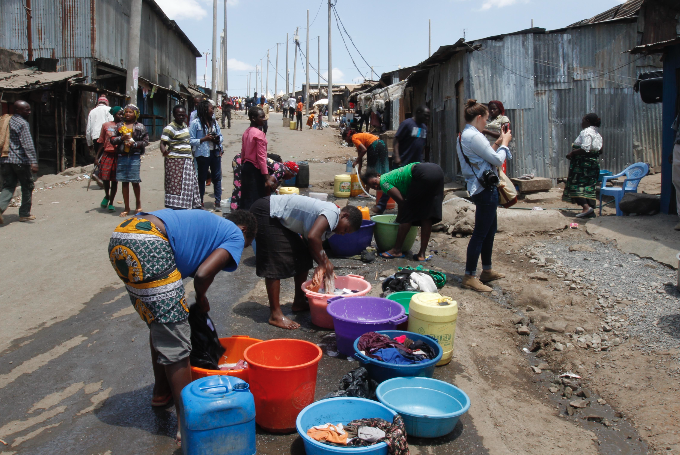

A new dawn has come for house helps, following the launch of an initiative seeking to empower domestic workers on their rights.
Mathare Social Justice Center has been mobilising domestic helps to list up with Dhobi Women Network, an organisation that seeks to unite them and confront severe workplace challenges.
“Some women are harassed or overworked, but they don’t even know their rights are violated. They think it's just part of the job,” says Wanjiru Macharia, a 34-year-old domestic worker and member of Dhobi Women Network. “Joining the network helped me realise I deserve better.”
The network is working closely with the Legal Empowerment Hub, providing not only legal advice but also tools for women to document abuses and demand accountability from employers and authorities. The group’s mission goes beyond legal education; it seeks to elevate the status of domestic work in Kenya and promote long-term economic resilience.
One way it achieves this is through “table banking”, a community-based savings and lending model. Table banking provides a critical safety net for women in formal and informal employment. Members contribute small amounts weekly or monthly and can borrow funds to meet emergency needs or start small businesses.
Last month, MSJC convened a powerful empowerment forum in Mathare that brought together key partners, including Ecological Justice Campaign, Teen Mums Campaign, Drugs and Crime Campaign, the Legal Empowerment Hub and the Participatory Action Research Committee. Attendees included domestic workers, human rights advocates and community leaders.
“The event united domestic workers, advocates and community members. It honoured those who lost their lives in domestic work and underscored the indispensable role of domestic workers in society, framing their challenges as global issues,” MSJC said.
Also present were organisations such as Maisha Safe House, Safer Girls Generation and Weslux Organisation, all of which have aligned with the Dhobi Women to push for reform in the domestic work sector.
Central to the forum is the belief knowledge is power. Workshops and training sessions helped women understand their legal protections such as the right to fair pay, reasonable working hours,and protection from harassment—rights enshrined in the Employment Act of Kenya, but often ignored in practice.
The forum’s rallying cry, “If you liberate yourself, you liberate your generation,” became more than a slogan. It became a shared mission.
“Our mothers and aunties suffered in silence,” said Faith Atieno, a 28-year-old mother of two. “We now have a chance to change that story.”
Despite representing more than two million workers in Kenya, domestic workers remain excluded from national labour policy reform and social protection systems. The Dhobi Women Network and its allies hope to change that—one empowered woman at a time.
Grassroots activism is bridging the gap left by weak labor enforcement. Empowering domestic workers may be the first real step toward dignity in informal employment.












